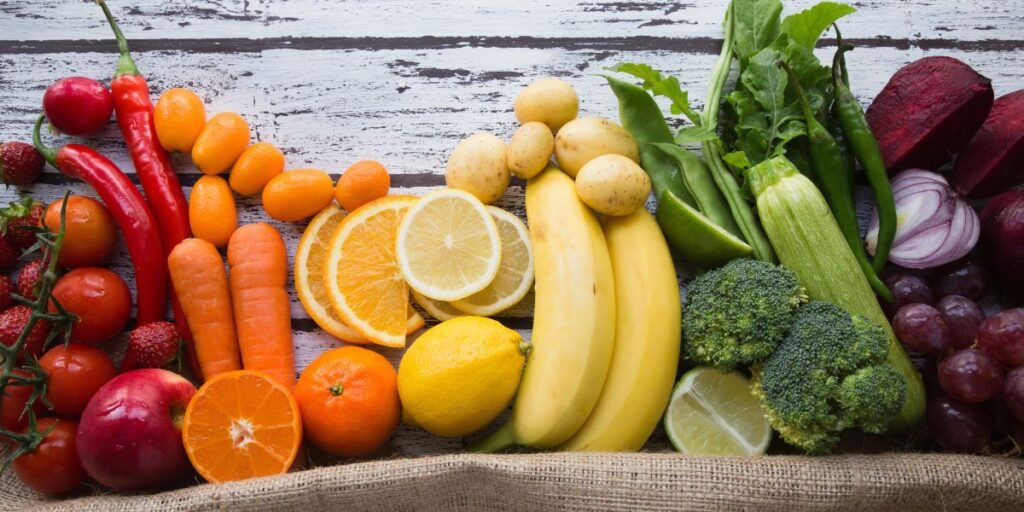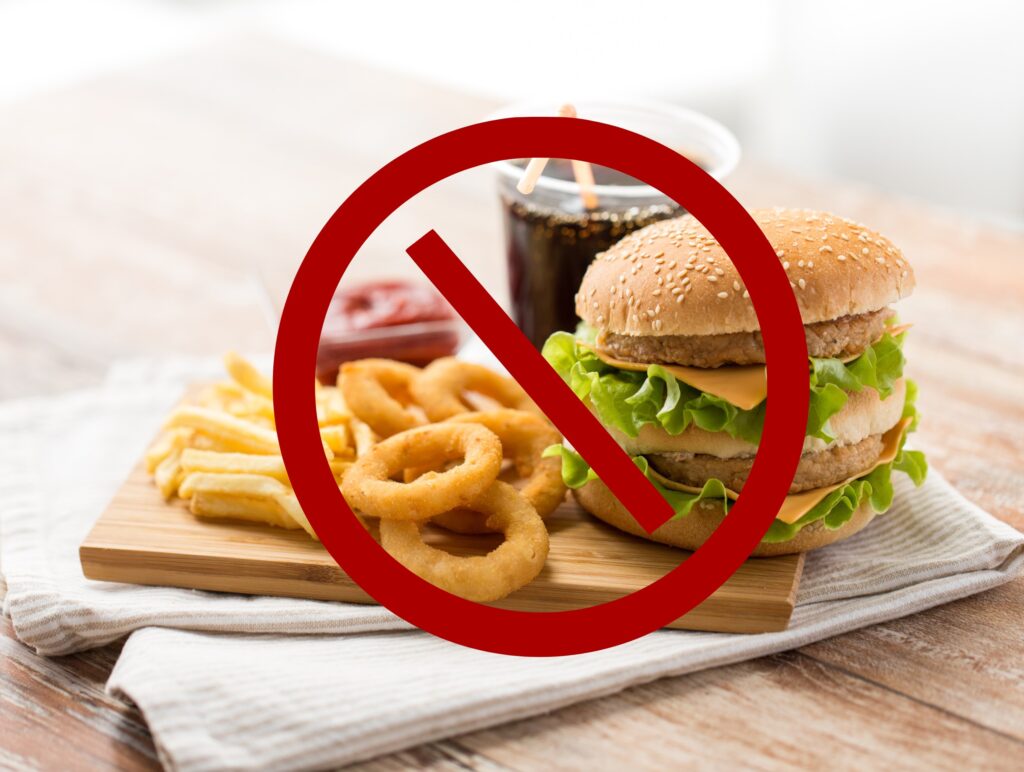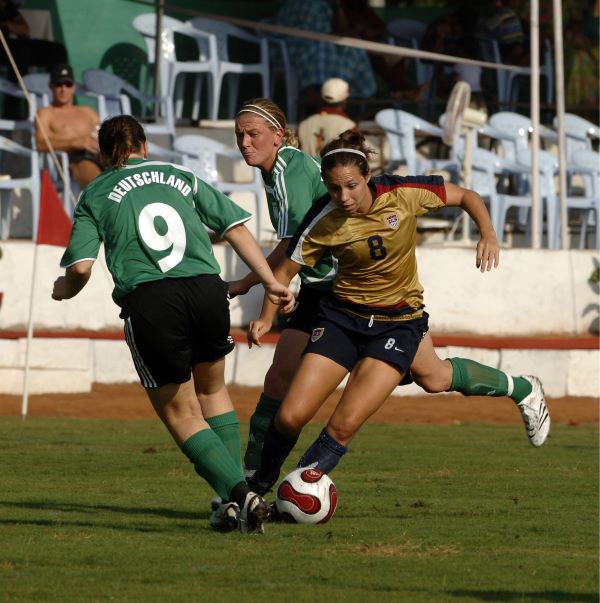
What To Eat For Faster Injury Recovery
Injuries are an unavoidable part of sport, but no one wants to be side-lined for too long. We know that following your physio program will help you recover, but nutrition is also an important part of your treatment plan. A good diet is essential for recovery from physical activity and injury, and sometimes you also need to adjust your calorie intake to account for a drop in your activity levels while you’re out of the game.
Food plays an important role outside of just fuelling your body. You may not know that food plays a significant role in inflammation, which is a key aspect of healing following an injury, so what you eat will impact your recovery. Food can also assist with rebuilding muscle, bone and repairing damaged tissue. So if you are currently injured or find yourself with constant niggles and aches, read below to learn more about the link between diet and your recovery.
Food And Inflammation
When you are injured, your body produces inflammation. Pain, swelling, redness and heat draws healing chemicals to the injured area. The damaged tissue is removed, and a new blood supply and temporary tissue is built. Next remodelling occurs, where stronger, more permanent tissue replaces the temporary tissue. Inflammation is important in triggering the repair process during injury, but too much inflammation can delay healing and cause additional damage.
Strategies to help produce the right amount of inflammation can be extremely useful and this is where nutrition plays a big role. Choose anti-inflammatory fats such as;
– olive oil
– avocado
– fish oil
– salmon
– sardines
– nuts and seeds
At the same time, avoid a high intake of pro-inflammatory food such as;
– processed foods
– take-away foods
– vegetable oils (corn oil, sunflower, safflower and soybean oil)

Food For Rebuilding
Once the body begins the proliferation and remodelling stages of healing (building of new tissue), a balanced diet is necessary. Ensure you eat adequate;
– protein
– low saturated fats
– a diverse range of fruit and vegetables
– slow-GI carbohydrates (you will need less carbohydrates than when you were training, but more than a sedentary day)
Energy Intake
It is common to reduce intake following an acute injury due to reduced activity levels and appetite, but energy expenditure may actually increase by 15-50% depending on the type and severity of injury. Reducing your intake could impact tissue healing and muscle wastage in the early stages of your injury, so guidance from a qualified sports dietitian can help you maximise your rehabilitation program by ensuring you are eating adequate protein, fat, carbohydrates and micronutrients.
Eat The Rainbow For Injury Prevention

It might sound like a cliché but a 2017 Scandinavian study found that a healthy diet with a variety of fruit, vegetables and fish reduced the odds of new injuries in adolescent athletes. Fruits and vegetables come in a range of colours which all have their own unique make-up of micronutrients essential for health and enhancing recovery between training sessions. Even if injuries sometimes seem out of your control, getting into the habit of eating a variety of fruit and vegetables in adequate amounts is not only beneficial for your general health, but could also play a role in reducing your risk of injury.
Collagen And Soft Tissue Injuries
Tendons and ligaments in the body are made of collagen cross linkages. Several studies have looked at the link between gelatin ingestion and injury prevention. Supplementation with gelatin has been shown to improve connective tissue structure and function, potentially improve joint health, and reduce pain associated with strenuous activity. Ingesting gelatin with vitamin C increases the effectiveness as they work together to increase collagen synthesis and improve collagen crosslinking, e.g. in tendon tissue.
The most current recommendations are: ingest a gelatin supplement (such as 15g of Great Lakes Gelatin Collagen Hydrolysate) with at least 50mg of vitamin C one-hour before training to assist injury prevention. If injured, collagen can be consumed daily to aid recovery by increasing collagen and tissue strength.
(Please note: These are general guidelines only, so more specific individualised advice speak to a qualified sports dietitian.)
Fatigue And Injuries
Research in soccer players found that injury risk increases towards the end of each half of the game. This is when players are fatigued, decision making and fine motor skills are impaired and running biomechanics are modified. The findings are transferrable to other sports – we commonly see this during the ski season when a big proportion of falls and injuries happen right towards the end of the day.
If you are fatigued towards the end of your game or race, you are more likely to injure yourself. Fuelling and hydrating adequately are the best measures to prevent injury by delaying onset of fatigue. Appropriate fuel and hydration plans that help you to maintain exercise intensity for longer and reduce fatigue need to be very personalised because they depend heavily on you, your body and the activity or sport that you are participating in.

Vitamin D And Bone Health
Bone health is critical for everyone! We’re taught from a young age to include dairy products in the diet for their calcium content, but vitamin D is the other main nutrient that we need to build strong, healthy bones.
Runners particularly are at a high risk of bone stress injuries, as well as those in indoor sports (because they are away from sunlight/vitamin D opportunity), non-weight bearing sports such as swimming, or physique-sensitive sports such as diving, gymnastics and body building. Studies have found runners with higher vitamin D intake recover quicker from injury, and those with higher bone density have decreased frequency of bone stress injuries.
Vitamin D can be obtained mostly from safe exposure to the sun, and in smaller amounts from some margarines or milks fortified with vitamin D. You can also ingest it from mushrooms that have had sun exposure. Using a vitamin D supplement depends on your body’s levels of vitamin D, so this should be discussed with your doctor or sports dietitian before commencing.
Injury Prevention And Recovery Works Best Using A Multi-Factor Approach
For any athlete, from recreational to elite level, preventing and managing injuries should always be part of the gameplan. As outlined above, eating the right foods can help you in so many ways. Often making some simple good food choices can help you play your best, minimise injuries, and recover from any injury that you do pick up.
As physios and exercise physiologists we definitely don’t have all of the answers when it comes to nutrition advice. The above information is general advice that is helpful in many cases, but if you want more specific or personalised information we’d recommend speaking to a qualified dietitian or nutritionist. A good place to start is to check the Sports Dietitians Australia to find an accredited sports dietitian near you.

